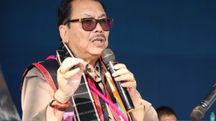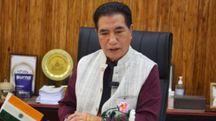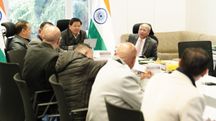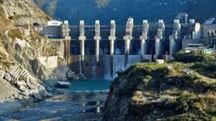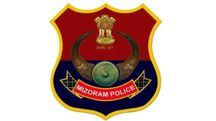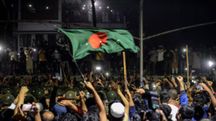Arunachal: Chakma candidate's nomination reignites refugee issue in the state
A major hue an cry broke out in Arunachal Pradesh after an independent candidate belonging from the Chakma community filed his nominations for the upcoming Assembly polls.
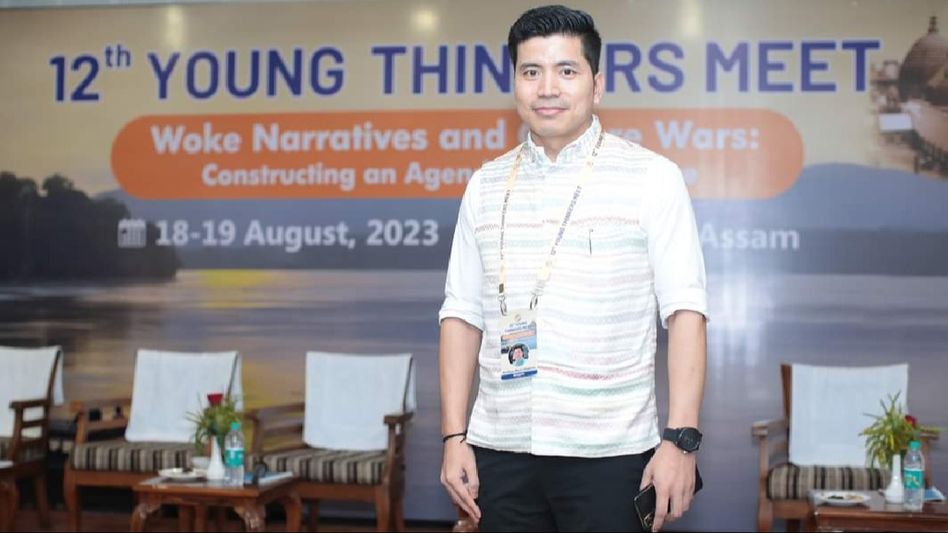
A major hue an cry broke out in Arunachal Pradesh after an independent candidate belonging from the Chakma community filed his nominations for the upcoming Assembly polls.
The candidate, Drishya Muni Chakma filed nomination from Bordumsa-Diyun Assembly constituency of Changlang district of Arunachal Pradesh.
The Chakma-Hajong issue is a longstanding and contentious matter in Arunachal Pradesh, generating significant debate, tension, and socio-political ramifications. This issue revolves around the settlement of Chakma and Hajong refugees in the state and encompasses a range of complex historical, legal, cultural, and demographic factors.
The roots of the Chakma-Hajong issue trace back to the aftermath of the 1962 Sino-Indian War when Chakma and Hajong refugees fled from East Pakistan (now Bangladesh) to seek refuge in India. They were initially settled in the North East Frontier Agency (NEFA), which later became Arunachal Pradesh. However, their settlement in the state has been a source of contention since then.
One of the core aspects of the issue is the legal status of the Chakma and Hajong refugees. The Arunachal Pradesh government and various indigenous groups argue that granting citizenship rights to these refugees would undermine the demographic and cultural integrity of the state. On the other hand, the Chakmas and Hajongs have been advocating for their rights as Indian citizens, citing their long-standing residence in the country.
Arunachal Pradesh is home to diverse indigenous tribes with distinct cultures and traditions. The settlement of Chakma and Hajong refugees raises concerns among the indigenous population about potential demographic changes and the dilution of their cultural identity. This demographic anxiety fuels opposition to the integration of the refugees into the state.
Another dimension of the issue revolves around land and resource allocation. Arunachal Pradesh is rich in natural resources, and there are fears that granting citizenship rights to Chakma and Hajong refugees could lead to competition over land and resources, exacerbating existing tensions and conflicts over land ownership.
The Chakma-Hajong issue has significant political implications in Arunachal Pradesh. Political parties and leaders often take opposing stances on the matter, seeking to capitalize on the sentiments of different communities for electoral gains. This politicization further complicates efforts to find a resolution to the issue.
Amidst the legal and political debates, there are also humanitarian considerations at play. The Chakma and Hajong refugees have been residing in Arunachal Pradesh for several decades, and many of them were born and raised in the state. Denying them citizenship rights could perpetuate their statelessness and deprive them of basic rights and opportunities.
The Chakma-Hajong issue remains a burning topic in Arunachal Pradesh due to its multifaceted nature and the deep-rooted concerns it raises regarding identity, citizenship, land, and resources. Finding a balanced and equitable resolution to this complex issue is crucial for fostering peace, harmony, and inclusive development in the state. However, achieving consensus amidst divergent interests and perspectives remains a formidable challenge.
Copyright©2025 Living Media India Limited. For reprint rights: Syndications Today

